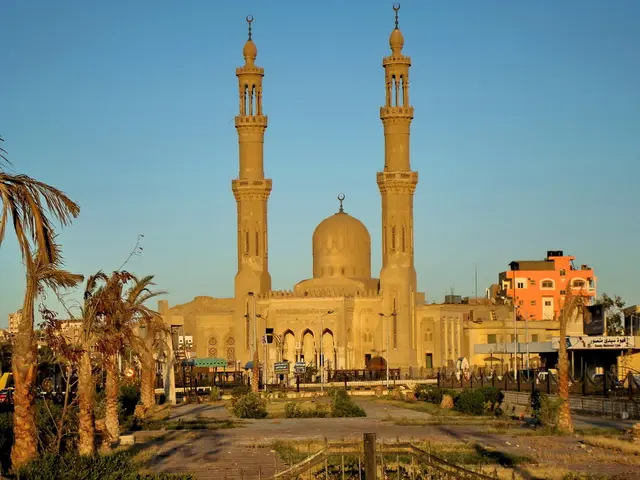Taiwan's foreign minister travels to Vienna, sparking China's displeasure
In a significant move, Taiwanese Foreign Minister Lin Chia-lung visited Vienna on Friday, marking the first high-level government visit from Taiwan in decades. The visit, which included meetings with Austrian politicians and a concert performance, was met with growing concern from China, but was emphasised by both sides as purely private in nature.
Despite the diplomatic tensions, Lin's visit to Austria was a testament to the strong ties between the two countries. Taiwan is one of Austria's most important Asian trading partners, with bilateral trade volume reaching around 1.8 billion euros in 2024. Machines developed in Austria are crucial for Taiwan's semiconductor production, making the country an essential partner in the world's largest microchip producer's supply chain.
During his visit, Lin met with representatives from business, politics, and culture. He held discussions with members of the ÖVP, NEOS, and Greens, underscoring the diverse range of relationships Taiwan has in Austria. The ambassadors of Japan and the Czech Republic were also present, demonstrating the international support for Taiwan's independent government.
One of the highlights of Lin's visit was a concert at the Music Association in Vienna. Hans Suan-yung Liu, a renowned trombonist who studied in Vienna and is Taiwan's representative in Austria, played at the concert. Liu, despite not having specific details about his studies in Vienna, is a well-known figure in musical circles.
However, the visit was not without controversy. China's government considers Taiwan, an island with over 23 million inhabitants, part of the People's Republic. Beijing was irritated by Lin's visit to Vienna, and Chinese authorities exerted 'strong pressure' on the Music Association before the concert.
Despite this pressure, Lin expressed optimism, seeing no change in US policy, and stating that Taiwan has the full support of the US Congress, with military aid already factored into the US budget. There is growing concern in Taipei about Washington's willingness to support Taiwan in the event of a Chinese attack, since the return of US President Donald Trump to the White House.
Lin's visit to Vienna served as a 'soft diplomatic offensive' by the democratic island nation. He also opened a new office of the Taiwanese representation in Rome and met with Italian parliamentarians before coming to Vienna. The concert in Vienna was a symbolic gesture, demonstrating Taiwan's commitment to cultural exchange and diplomatic engagement.
Despite the challenges, Taiwan continues to maintain its independent government, having been democratically governed for decades. Austria, like many countries, does not maintain diplomatic relations with Taiwan, but the strong economic ties and cultural exchange suggest a complex and evolving relationship. As Taiwan continues to assert its independence on the global stage, visits like Lin's to Vienna are likely to become increasingly significant.
Read also:
- United States tariffs pose a threat to India, necessitating the recruitment of adept negotiators or strategists, similar to those who had influenced Trump's decisions.
- Weekly happenings in the German Federal Parliament (Bundestag)
- Southwest region's most popular posts, accompanied by an inquiry:
- Discussion between Putin and Trump in Alaska could potentially overshadow Ukraine's concerns







